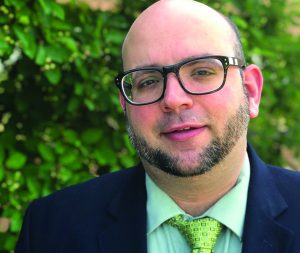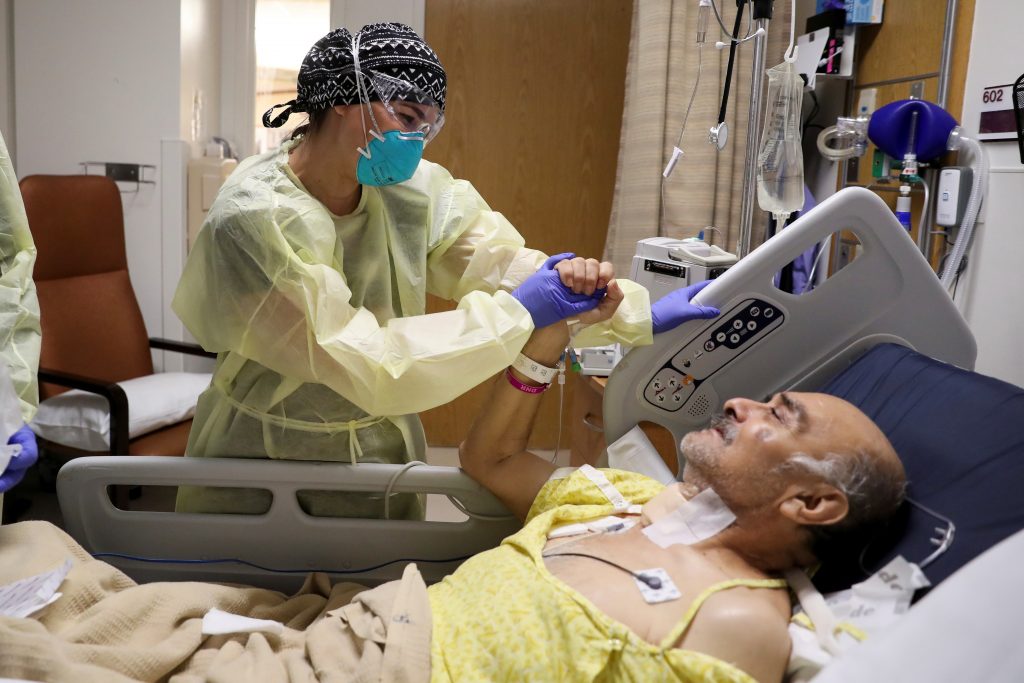For the Oct. 30 - Nov. 7 special election issue of Angelus, we asked a handful of Catholic thinkers to offer their thoughts on the issues that American Catholics should care about for the next four years, independent of the candidates or political party that govern after the Nov. 3 elections.
Each day starting Oct. 27, one of the seven essays from our guest contributors will be published on AngelusNews.com.
While health care has long been a prominent issue in American politics, it has never played such a central part in an election year as it has in 2020 amid the coronavirus (COVID-19) public health crisis.
Much has been made of the weaknesses in our country’s health care system that COVID-19 has exposed. We have witnessed the reality that much of our system operates under an abortive mindset; that is, the assumption that persons who are disabled, poor, or living with chronic conditions lead lives that are not worth living.
Dealing with disparities in access to health care and improving access to preventative care (including health and wellness options) have taken on a heightened urgency.
The essential domestic political task of the next four years will be to advance a culture of life in medical care in three key ways.
The right to life in health care
Every person has a right to medical care that is based on the inherent right to life from conception to natural death. The right to medical care for each person flows from the duty of society to provide that care and not the government alone.

As St. Pope John Paul II proclaimed, our country’s ability to fully defend the right to medical care and all other rights is dependent on whether we fully defend the right to life. Our elected officials have a moral obligation to protect the life and dignity of every American beginning with the most vulnerable.
Consistent with papal teaching and the U.S. Conference of Catholic Bishops’ introductory letter on “Forming Consciences for Faithful Citizenship,” the preeminent priority of the next presidential term must be to defend the right to life of the most vulnerable: unborn children.
Abortion, which involves the murder of a child in utero, claims the lives of well over 600,000 Americans per year. Of the 60 million children who have been aborted since Roe v. Wade, 19 million of them have been African American.
Concretely, the next presidential administration and Congress should implement a pro-life health care policy that fully defends the unborn, upholds the Hyde Amendment’s prohibition on public funding of abortion, protects the life and health of infants who survive abortion, and provides support, medical care, and material assistance to mothers in crisis pregnancies.
Freedom of conscience
The rights of conscience and religious freedom in health care are under the greatest threat in American history. More than 100 U.S. Senators and members of Congress have endorsed a government takeover of health care that would create a federal abortion mandate, shred conscience and religious freedom protections for doctors and nurses, and virtually destroy the ability of Catholic health care to serve the poor and vulnerable.
In just the last 10 months, a Catholic physician in Oregon was fired by a Catholic medical institution because of her beliefs, a Catholic hospital in Maryland that was sued because it refused to violate Catholic teaching in their medical services, and a federal court blocked the Trump administration’s civil rights regulatory action that safeguarded civil rights in health care, while also protecting the rights of medical conscience and religious freedom.
The right of health care workers to provide medical care that is consistent with their moral or religious convictions is one of the most fundamental rights in a society. If our country passes laws that force medical professionals to violate their conscience, our country will do serious damage to civil rights, while putting every other fundamental right at risk.
Instead, the White House should work with Congress to pass federal health care conscience legislation that protects the right of doctors, nurses, medical students, medical professionals, and health care entities to care for their patients according to their consciences.
COVID-19, religious freedom, and health care civil rights
The COVID-19 public health crisis has caused pain and suffering for so many in our country. It has exposed underlying inequality in our medical system: Certain communities of color, persons with pre-existing conditions, and the materially poor have proven to be susceptible to this virus.
It has also exposed serious concerns about religious freedom as well as the importance of religious practice in many Americans’ well-being and overall health.

Tragically, we have seen many local and state government and public health officials express apathy, and at times hostility, toward the freedom of religion and the essential activities of people of faith. There is no public health exception to the First Amendment’s guarantee of religious freedom, as the U.S. Department of Justice has declared. Even during a public health crisis, religious freedom must be protected as least as strongly as commercial business interests.
While religious freedom, the freedom to know and love God, is a fundamental freedom deserving of the elevated legal protection of the First Amendment, religious freedom also plays a vital role in the whole health of a person. According to social science research, people who regularly attend religious services are happier and healthier than their counterparts.
This crisis has also exposed the reality that many vulnerable persons have unequal access to medical care and experience serious discriminatory violations of their civil rights in their medical care.
We have seen patients denied medical care, family visitation, and access to spiritual support from chaplains and patient advocates. Hospitals and other medical facilities have moral and legal obligations to safeguard the life, dignity, and civil rights of patients and families.
In response to these troubling trends, Christ Medicus Foundation has called for a new birth of civil rights in health care, beginning with the fundamental right of religious freedom and expanding into the defense of the civil rights of patients who are marginalized and most vulnerable.
Catholic bishops, medical professionals, and health care leaders must come together with the laity to bring Christ-centered medical care to the margins of American life.
The road ahead requires that elected officials prioritize the defense of the unborn, conscience protections, religious freedom and civil rights in health care, and advance federal legislation that allows Catholic health care to fulfill its mission.

